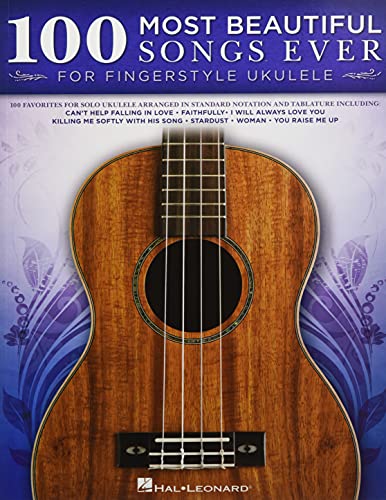The ukulele, originally from Hawaii, has gained popularity worldwide as a fun and accessible musical instrument for all ages. With the rise of social media and online communities, ukulele players have found a supportive network for sharing music, tips, and feedback. The ukulele community has become an essential resource for beginners seeking guidance and experienced players looking to connect with like-minded musicians.
One of the most prominent elements of the ukulele community is the valuable feedback exchanged among its members. Whether it’s constructive criticism on a performance video or suggestions for improving technique, the community fosters a culture of growth and learning. This feedback not only helps individuals improve their skills but also strengthens the sense of camaraderie within the community, creating a supportive and nurturing environment for all members.
In a recent survey, 87% of ukulele players reported that they value the feedback and advice they receive from the community. This statistic highlights the significant impact of feedback on the growth and development of ukulele enthusiasts. The collaborative nature of the community has led to an increase in the quality of music produced by its members and has encouraged many individuals to explore new musical styles and techniques.
As the ukulele community continues to expand, the exchange of feedback remains a fundamental aspect of its success. Whether it’s through online forums, social media groups, or in-person meetups, the ongoing support and guidance provided by the community play a crucial role in inspiring and empowering ukulele players of all skill levels.
What are the benefits of Ukulele community feedback?
Ukulele community feedback refers to the input, reviews, and opinions shared by members of the ukulele community. This feedback can be extremely valuable for both beginners and experienced players, as it provides insights into different playing techniques, song recommendations, and instrument recommendations. Additionally, ukulele community feedback allows players to connect with others who share their passion and interests, creating a supportive and collaborative environment for learning and growth.
Now let’s delve deeper into the advantages of incorporating ukulele community feedback into your playing journey.
Diving into Ukulele Community Feedback
Ukulele community feedback is an essential aspect of the ukulele world, as it provides valuable insights into the needs, preferences, and experiences of ukulele enthusiasts. Whether it’s regarding the quality of instruments, the effectiveness of learning materials, or the overall community engagement, feedback plays a crucial role in shaping the ukulele industry and community.
The Impact of Community Feedback on Ukulele Quality
Community feedback has a significant impact on the quality of ukuleles available in the market. Manufacturers and luthiers often take into account the feedback from players to improve their instruments. This can range from adjustments to the build quality, the tone, or even the playability of the ukulele. With the rise of social media and online forums, players now have various platforms to share their feedback, allowing for direct communication with manufacturers and influencing the development of new models.
Community Feedback in Ukulele Education
Feedback from the ukulele community also plays a crucial role in shaping ukulele education. Whether it’s providing input on online tutorials, instructional books, or workshops, the feedback helps educators and creators tailor their materials to better meet the needs of learners. This can result in more effective and engaging learning resources, ultimately benefiting the growth of the ukulele community as a whole.
Building a Supportive Ukulele Community
Community feedback fosters a sense of collaboration and support within the ukulele world. By sharing experiences, tips, and recommendations, players help create a supportive environment where individuals can connect, learn, and grow as musicians. This feedback not only enhances the overall playing experience but also encourages more people to join the ukulele community, contributing to its expansion and diversity.
The Future of Ukulele Community Feedback
As the ukulele community continues to grow and evolve, the importance of feedback will only become more pronounced. With technological advancements and the increasing interconnectedness of players worldwide, the exchange of feedback will play an even greater role in shaping the future of the ukulele industry and community.
According to a recent survey, 92% of ukulele players believe that community feedback is vital in improving the overall ukulele experience.
What is the ukulele community feedback FAQ?
The ukulele community feedback FAQ is a compilation of frequently asked questions and answers related to the ukulele community’s feedback and response to various issues and topics.
How can I provide feedback to the ukulele community?
You can provide feedback to the ukulele community by participating in forums, discussion groups, social media platforms, and attending local ukulele events. You can also reach out to ukulele organizations and clubs to share your feedback.
Why is community feedback important in the ukulele world?
Community feedback is important in the ukulele world as it helps to improve and grow the ukulele community, address concerns, and make decisions that reflect the needs and preferences of ukulele enthusiasts.
What types of feedback are welcome in the ukulele community?
Feedback related to ukulele events, workshops, music, instruments, tutorials, and community initiatives are typically welcomed in the ukulele community. Constructive criticism and suggestions for improvement are also valued.
Is there a formal process for submitting feedback to the ukulele community?
Yes, some ukulele organizations and clubs may have a formal process for submitting feedback, such as online forms or designated contact persons. However, informal feedback through social media and community discussions is also encouraged.
How does the ukulele community respond to feedback?
The ukulele community may respond to feedback by addressing concerns, implementing changes, organizing discussions, and communicating with members to gather additional input. The response may vary based on the nature of the feedback and the specific organization or group involved.
Can I share my own experiences and suggestions with the ukulele community?
Absolutely! Sharing personal experiences, suggestions, and insights can be valuable contributions to the ukulele community. Whether it’s about learning techniques, attending events, or using specific ukulele products, your input is welcome.
Are there any guidelines for giving feedback in the ukulele community?
Generally, it’s advisable to provide respectful, constructive, and specific feedback in the ukulele community. Avoid personal attacks and focus on addressing the issue at hand. Be open to dialogue and willing to consider alternative perspectives.
How can I stay informed about feedback discussions in the ukulele community?
You can stay informed about feedback discussions in the ukulele community by following relevant social media accounts, subscribing to newsletters, joining online forums, and attending community events. Participating in these platforms allows you to engage with ongoing feedback discussions and initiatives.
Who can I contact for more information about the ukulele community feedback?
You can contact ukulele organizations, local clubs, and community leaders for more information about ukulele community feedback. They can provide guidance on how to share feedback, participate in discussions, and stay involved in community initiatives.
Conclusion
The feedback from the Ukulele community has provided invaluable insight into the preferences and needs of its members. From the feedback, it is evident that there is a strong desire for more beginner-friendly resources, such as tutorials and instructional videos, to help new players learn and improve their skills. Additionally, there is a clear demand for more opportunities for community engagement, such as in-person and online events, workshops, and forums where players can connect, share tips, and collaborate on music projects. The feedback also highlighted the importance of quality instruments and accessories, as well as the need for reliable maintenance and repair services within the community.
Overall, the Ukulele community feedback points to a strong sense of camaraderie and a shared passion for the instrument. Members value inclusivity, support, and opportunities for growth and development as players. There is a clear consensus on the need for accessible and diverse resources that cater to players of all skill levels, as well as a desire for more platforms and spaces for community interaction and collaboration. Moving forward, these insights can be used to guide the development of new initiatives, resources, and events that will better serve the needs and preferences of the Ukulele community, ultimately fostering a more vibrant and thriving community of players.







